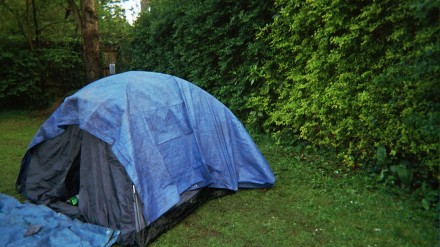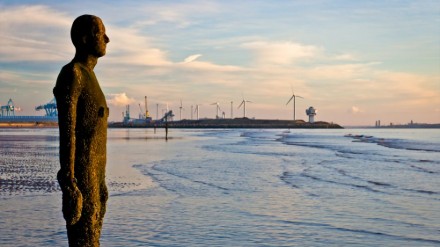The Liverpool Salon Category
The Liverpool Salon is a new forum for debate on Merseyside. Part of a global network, based in cities as far a field as Manchester, Leeds, Sheffield, London, New York and Zurich, the Liverpool Salon fosters thought-provoking, critical conversations around contemporary issues in welcoming and convivial surroundings.
Practical Utopias

Join Kevin Bean, Heather Alcock and Mick Owens to talk about three idiosyncratic practical utopias: the Chartists’ Land Plan, Port Sunlight and the 2012 Olympic Park.
Read the full article...ROUGH JUSTICE
Tate Exchange Liverpool
2.00 – 4.00 pm, Tuesday 23 January 2018
Albert Dock
Liverpool Waterfront
Liverpool L3 4BB
Book via Eventbrite
At the start of the 21st century, in one of the world’s richest economies, why should the problem of homelessness seem so intractable? Should we blame government welfare changes, including the introduction of Universal Credit and cuts to housing benefit? Does the problem lie with the shortage of affordable housing? Or is there a problem with a growing culture of illegal street behaviour? Should we be arguing for better support services, changes in societal attitudes, or simply more affordable homes? Join the Liverpool Salon and Museum of Homelessness to debate the crisis of homelessness today, in Liverpool and across the UK. This event is a partnership between the Liverpool Salon and Museum of Homelessness and part of State of the Nation conversation on Homelessness at Tate Exchange Liverpool. Museum of Homelessness will be presenting Frequently Asked Questions an artwork by Anthony Luvera exploring the support and services available to homeless people around the UK.
Speakers
 Julie Fadden is Chief Executive of South Liverpool Homes. She joined the organisation in 2005, bringing more than 25 years of local authority and housing management experience to her role. For the past 12 years she has proved that if you have the right people and the right focus, you can achieve fantastic results. This approach has turned a loss-making organisation into a profitable one, a blame culture into the best not-for-profit company to work for (for four years running) and a poor performing housing service into one of the best in the country. From May 2016 to September 2017, Julie served as President of the Chartered Institute of Housing where she campaigned for organisations to work together to end homelessness for good. During this time she raised over £60K for homelessness charity, Crisis UK.
Julie Fadden is Chief Executive of South Liverpool Homes. She joined the organisation in 2005, bringing more than 25 years of local authority and housing management experience to her role. For the past 12 years she has proved that if you have the right people and the right focus, you can achieve fantastic results. This approach has turned a loss-making organisation into a profitable one, a blame culture into the best not-for-profit company to work for (for four years running) and a poor performing housing service into one of the best in the country. From May 2016 to September 2017, Julie served as President of the Chartered Institute of Housing where she campaigned for organisations to work together to end homelessness for good. During this time she raised over £60K for homelessness charity, Crisis UK.
 Dave Clements is a writer, adviser to local government, and first convened the Social Policy Forum at the Institute of Ideas in 2008. He has over 15 years experience in policy and strategy development, in children’s, adults’ and integrated services, working across the public and charity sectors. Dave is contributing co-editor of The Future of Community (Pluto, 2008), author of Social Care for Free Citizens (Manifesto Club, 2010) and a contributor to The Future of the Welfare State (Axess, 2017). He also writes widely on contemporary policy culture for publications including the Guardian and Huffington Post; and online journal spiked. An archive of his writing can be found here.
Dave Clements is a writer, adviser to local government, and first convened the Social Policy Forum at the Institute of Ideas in 2008. He has over 15 years experience in policy and strategy development, in children’s, adults’ and integrated services, working across the public and charity sectors. Dave is contributing co-editor of The Future of Community (Pluto, 2008), author of Social Care for Free Citizens (Manifesto Club, 2010) and a contributor to The Future of the Welfare State (Axess, 2017). He also writes widely on contemporary policy culture for publications including the Guardian and Huffington Post; and online journal spiked. An archive of his writing can be found here.
Follow Dave on Twitter @daveclementsltd
 Anthony Luvera is an Australian artist, writer and educator based in London. His work has been exhibited widely in galleries, public spaces and festivals, including the British Museum, London Underground’s Art on the Underground, National Portrait Gallery London, Belfast Exposed Photography, Australian Centre for Photography, PhotoIreland, Malmö Fotobiennal, Goa International Photography Festival, and Les Rencontres D’Arles Photographie. His writing appears regularly in a wide range of publications including Photoworks, Source and Photographies. Anthony is Principal Lecturer and Course Director of MA Photography and Collaboration at Coventry University. He also designs education and mentorship programmes, facilitates workshops, and gives lectures for the public education departments of the National Portrait Gallery, Royal Academy of Arts, The Photographers’ Gallery, Photofusion, Barbican Art Gallery, and community photography projects across the UK. www.luvera.com
Anthony Luvera is an Australian artist, writer and educator based in London. His work has been exhibited widely in galleries, public spaces and festivals, including the British Museum, London Underground’s Art on the Underground, National Portrait Gallery London, Belfast Exposed Photography, Australian Centre for Photography, PhotoIreland, Malmö Fotobiennal, Goa International Photography Festival, and Les Rencontres D’Arles Photographie. His writing appears regularly in a wide range of publications including Photoworks, Source and Photographies. Anthony is Principal Lecturer and Course Director of MA Photography and Collaboration at Coventry University. He also designs education and mentorship programmes, facilitates workshops, and gives lectures for the public education departments of the National Portrait Gallery, Royal Academy of Arts, The Photographers’ Gallery, Photofusion, Barbican Art Gallery, and community photography projects across the UK. www.luvera.com
Chair
 Pauline Hadaway has worked in arts and education in the UK and Ireland since 1990 and is co-founder of The Liverpool Salon, a new forum for public debate on Merseyside. She is undertaking a professional doctorate at the University of Manchester’s Institute of Cultural Practices, researching different uses of cultural heritage as a tool for peace-building in Northern Ireland and Britain. She has been published widely including: Policing the Public Gaze (2009), published by The Manifesto Club; Re-imagining Titanic, re-imaging Belfast, in Relaunching Titanic: Memory and Marketing in the ‘Post Conflict City (2013) and Escaping the Panopticon, Photography Reframed (2017).
Pauline Hadaway has worked in arts and education in the UK and Ireland since 1990 and is co-founder of The Liverpool Salon, a new forum for public debate on Merseyside. She is undertaking a professional doctorate at the University of Manchester’s Institute of Cultural Practices, researching different uses of cultural heritage as a tool for peace-building in Northern Ireland and Britain. She has been published widely including: Policing the Public Gaze (2009), published by The Manifesto Club; Re-imagining Titanic, re-imaging Belfast, in Relaunching Titanic: Memory and Marketing in the ‘Post Conflict City (2013) and Escaping the Panopticon, Photography Reframed (2017).
The Debate
According to statistics published by the Department for Communities and Local Government, homelessness has been rising in the UK since 2010. Over and above the official data, homelessness charities point to the scandal of hidden homelessness affecting ‘potentially millions of sofa surfers’ and families bringing up children in unsuitable temporary accomodation. Meanwhile rough sleeping has risen dramatically with numbers of people with an identified mental health support need increasing three-fold since 2009-10 as a recent study by housing charity Shelter, found that 307,000, or one in every 200, people are now either sleeping rough or in temporary accommodation.
Liverpool has seen an increase of almost 20% in people asking for help and advice over homelessness issues since 2010, with more than 6,000 queries last year. The number of people sleeping rough on the streets of Liverpool is also visibly on the rise. However, in spite of the best efforts of many individuals working in services designed to support homeless people, a recent study found a high degree of consensus among people with lived experience of homelessness that the current system on Merseyside is not working effectively for people with complex needs. Recently elected Metro Mayor Steve Rotheram has called for new approaches to help rough sleepers, through the Housing First model, which advocates getting people into a house or flat as quickly as possible and then providing them with visiting support services. However a 2017 report commissioned by Liverpool City Council points to deep structural and political problems that challenge easy solutions, while drawing a distinction between rough sleeping, homelessness, begging and ‘problems linked to ‘wider crime and criminal offences’.
Photograph from Assembly (2012 – 2014) by Anthony Luvera
After the referendum – planning for change
Join the Liverpool Salon on Saturday 5 November at 2.30 pm to debate the future of the UK economy.
Liverpool Central Library, William Brown Sreet, Liverpool
While Project Fear was accused of exaggerating the long-term economic impacts of breaking with the EU, early indications – from the fall in sterling to fears of losing access to foreign skills and investment – suggest that the short to medium term impacts will be painful. Yet, with economic output already weak, borrowing high and productivity and wages on the slide, the UK economy has been in trouble for decades. After years spent ‘kicking the can down the road’, has Brexit finally forced the future of the economy back onto the political agenda? And if so what does that future hold?
Here in the North much has been made of plans to devolve power to local authorities and appoint metro mayors for big city areas such as Greater Manchester and Merseyside to build a future ‘northern powerhouse’. Yet, many remain sceptical about the potential, let alone the will, to initiate ambitious projects that could turn the economy around. Behind the rhetoric of building a new industrial revolution, the powerhouse economy has delivered very little beyond the beginnings of a property boom, limited cultural regeneration, and a boost to Manchester’s financial services and ‘creative industries’ sectors. Meanwhile, many new industries and ambitious infrastructure projects with the potential to revolutionise the UK economy – from fracking, nuclear power and biotech to new runways and high-speed trains – continue to face considerable resistance.
Is the powerhouse running out of steam? Or can the North come up with a ‘modern, active industrial policy’ that is capable of providing the jobs, houses and public services that people need? If Brexit provided the political wake up call, what should future economic plans look like and who will drive them?
Speakers
Hilary Salt is a Founder of First Actuarial LLP and provides actuarial and consultancy advice to pension scheme trustees and employers and works extensively with trade unions where she assists in collective bargaining situations and advises on the pension schemes run by trade unions themselves. Hilary has recently been re-appointed as the independent adviser to the governance arrangements of the NHS Pension Scheme, a position she previously held for 10 years.
Rob Killick is the founder and director of the digital agency Clerkswell and also the software company EasySharePoint. He is a writer and speaker in his spare time and the author of the economy blog The UK after the recession.
Laird Ryan is an urbanist. town planner and editor of OpenDemocracy’s LocalismWatch site, aimed at making sense of the government’s localism agenda. Laird’s CV includes roles in government, academia and the third sector, including acting as chief advisor to Stoke’s Elected Mayor, leading a ‘Green Papers’ initiative, enabling the wider community to engage with public policy at an earlier stage and higher level. Laird currently designs distance-learning modules for University College of Estate Management, Reading and is Vice-Chair of a Liverpool-based environmental charity.
Chair
Pauline Hadaway has worked in arts and education in the UK and Ireland since 1990 and is undertaking a professional doctorate at the University of Manchester’s Institute of Cultural Practices, researching different uses of cultural heritage as a tool for economic regeneration in Northern Ireland and Britain. Pauline is currently a policy correspondent for the public policy research network ‘DevoCulture in the North’.
After the referendum – where to next?
 Britain’s vote to leave the European Union has exposed the astonishing depth of disaffection between different regions and sections of society and between large numbers of British people and their political institutions. Many fear the consequences for democracy of overturning the decision to leave the EU. However, for many who are signing petitions or marching for a second Referendum, fears of a post Brexit Britain seem to prevail. Meanwhile politicians seem paralysed, unable to confront reality, let alone govern. In an atmosphere of anger, fear and recrimination, there is a sense of things falling apart.
Britain’s vote to leave the European Union has exposed the astonishing depth of disaffection between different regions and sections of society and between large numbers of British people and their political institutions. Many fear the consequences for democracy of overturning the decision to leave the EU. However, for many who are signing petitions or marching for a second Referendum, fears of a post Brexit Britain seem to prevail. Meanwhile politicians seem paralysed, unable to confront reality, let alone govern. In an atmosphere of anger, fear and recrimination, there is a sense of things falling apart.
But whatever we think about the outcome of the Referendum, most would acknowledge that the problems we face as a society did not suddenly arise on the morning of 24 June. Over the last few years, the Liverpool Salon has been hosting public conversations around the very issues we are grappling with today: questions about citizenship, national borders and migration; about democracy, political agency and the political choices that face us; about the future of the economy. Above all questions about the kind of society we want to live in.
Once again, we are joining forces with Ullet Road Unitarian church to host a public conversation. The theme is post Brexit Britain and the direction it should take. How do we go forward as a society? What values do we defend and take with us. What challenges do we face? We don’t propose to re-fight the Referendum. And we don’t expect to find answers to all our questions. But we want to be part of a new national conversation arising from the grassroots. We are inviting speakers with different points of view to lead off the discussion. We will be announcing them over the next weeks. But hope that people from all shades of opinion will join us and contribute their ideas and opinions to the conversation.
Venue
Ullet Road Unitarian Church, Ullet Road, Sefton Park, Liverpool L17 2AA
Date
Friday 12 August from 7 – 9 pm
All are welcome. There is no charge, but feel free to make a donation. And bring some food and drink if you can, to add to the spirit of good will and conviviality that The Liverpool Salon and the Unitarians seek to promote.
To make a booking visit Liverpool Salon website
Speakers Confirmed
 John Fitzpatrick worked for many years in community law centres in Brixton and Hammersmith in London and joined the University of Kent in 1991. He is Director of the Kent Law Clinic and teaches human rights law at Kent. The Law Clinic provides free legal representation to those who can’t afford it – in employment, housing, welfare benefits, immigration, asylum, public rights of way and other cases. while teaching students in the process.
John Fitzpatrick worked for many years in community law centres in Brixton and Hammersmith in London and joined the University of Kent in 1991. He is Director of the Kent Law Clinic and teaches human rights law at Kent. The Law Clinic provides free legal representation to those who can’t afford it – in employment, housing, welfare benefits, immigration, asylum, public rights of way and other cases. while teaching students in the process.
Chair
 Pauline Hadaway has worked in arts and education since 1990 and is co-founder of The Liverpool Salon, a forum for public debate on Merseyside. In her doctoral research at the University of Manchester, Pauline is exploring different uses of arts, heritage and culture as tools for peace building in Northern Ireland. Pauline has been published widely including: ‘Policing the Public Gaze’ (2009), a report for campaign group, The Manifesto Club and ‘Re-imagining Titanic, re-imaging Belfast’ in ‘Relaunching Titanic: Memory and Marketing in the ‘Post Conflict City’ (2013). ‘Escaping the Panopticon’ will be published in an essay collection by I.B. Taurus in 2017.
Pauline Hadaway has worked in arts and education since 1990 and is co-founder of The Liverpool Salon, a forum for public debate on Merseyside. In her doctoral research at the University of Manchester, Pauline is exploring different uses of arts, heritage and culture as tools for peace building in Northern Ireland. Pauline has been published widely including: ‘Policing the Public Gaze’ (2009), a report for campaign group, The Manifesto Club and ‘Re-imagining Titanic, re-imaging Belfast’ in ‘Relaunching Titanic: Memory and Marketing in the ‘Post Conflict City’ (2013). ‘Escaping the Panopticon’ will be published in an essay collection by I.B. Taurus in 2017.
The Liverpool Salon presents
Ullet Road Unitarian Church, 57 Ullet Rd, Liverpool L17 2AA York Street entrance.
Friday 6 November at 7.30 pm
The Liverpool Salon and Ullet Road Unitarians invite you to join them to debate the nature of radical politics today in the historical light of ideas of ‘spiritual freedom’, freethinking and tolerance for dissent. We ask, who are today’s political radicals, how do they connect to the history of radicalism and what are the challenges for reigniting radicalism in the contemporary world?
When Parliament abolished the Court of Star Chamber in 1640, it established the principle of defending individual liberties and freedom of conscience against the arbitrary power of governments to silence political opposition and religious dissent. In the words of John Milton, freedom of conscience meant that ‘no man ought to be punished or molested by any outward force on earth whatsoever because of a belief or practice in religion according to conscientious belief’. Religious dissent and radical politics often went hand in hand; as people like eighteenth-century Unitarian radical John Cartwright argued, it was not enough to hope and pray for a ‘better world’ to come, but that ‘we should mend the world we are in’. The concept of ‘spiritual freedom’ became key to Enlightenment understandings of tolerance and freethinking, which advocated robust engagement with others over matters of principle, opening the door to radical political movements that advanced the cause of universal suffrage, equality and individual and collective freedoms.
From ‘counter extremism’ legislation, to fears of ‘radicalisation’, censorship and speech codes that restrict what we can say, Britain appears to be straying a long way from Enlightenment principles of tolerance and freethinking. What are the links between radical politics, political freedoms and tolerance for dissent? Are these historical concepts still relevant today? Or are some forms of radicalism simply beyond the limits of tolerance? If there are limits ontolerance, where do we draw the line and what are the implications for reigniting radicalism today?
Reigniting Radicalism is a Battle of Ideas 2015 satellite event. The Battle of Ideas is a weekend of high level, thought provoking public debate taking place on 17 & 18 October at the Barbican, London. For more info and tickets visit Battle of Ideas 2015

Guided Tour of historic Ullet Road Church: 7pm
Chair
 Pauline Hadaway has worked in arts and education since 1990 and is co-founder of The Liverpool Salon, a new forum for public debate on Merseyside. In her doctoral research at the University of Manchester, Pauline is currently exploring different uses of arts, heritage and culture as tools for peace building in Northern Ireland. Pauline has been published widely including: ‘Policing the Public Gaze’ (2009), a report for campaign group, The Manifesto Club; ‘Escaping the Panopticon’ (2012) and ‘Re-imagining Titanic, re-imaging Belfast’ a chapter in ‘Relaunching Titanic: Memory and Marketing in the ‘Post Conflict City’ (2013)
Pauline Hadaway has worked in arts and education since 1990 and is co-founder of The Liverpool Salon, a new forum for public debate on Merseyside. In her doctoral research at the University of Manchester, Pauline is currently exploring different uses of arts, heritage and culture as tools for peace building in Northern Ireland. Pauline has been published widely including: ‘Policing the Public Gaze’ (2009), a report for campaign group, The Manifesto Club; ‘Escaping the Panopticon’ (2012) and ‘Re-imagining Titanic, re-imaging Belfast’ a chapter in ‘Relaunching Titanic: Memory and Marketing in the ‘Post Conflict City’ (2013)
Speakers
 John Fitzpatrick worked for many years in community law centres in Brixton and Hammersmith in London and joined the University of Kent in 1991. He is Director of the Kent Law Clinic and teaches human rights law at Kent. The Law Clinic provides free legal representation to those who can’t afford it – in employment, housing, welfare benefits,immigration, asylum, public rights of way and other cases, while teaching students in the process.
John Fitzpatrick worked for many years in community law centres in Brixton and Hammersmith in London and joined the University of Kent in 1991. He is Director of the Kent Law Clinic and teaches human rights law at Kent. The Law Clinic provides free legal representation to those who can’t afford it – in employment, housing, welfare benefits,immigration, asylum, public rights of way and other cases, while teaching students in the process.
 Rev. Philip Waldron is a Unitarian District Minister for Merseyside. His principle churches are Ullet Road Church, Wirral and Southport Unitarians. This is Philip’s first Ministry. Philip graduated from Luther King House (Ecumenical College) in 2015, studying Contextual Theology. Philip also attended Bishop Grosseteste College in Lincoln, gaining a BA in Community Theatre. Philip has been published contributing to ‘Liverpool Unitarians: Faith & Action’ (2014). Philip ran a community theatre company in Liverpool from 2005 – 2010, producing original plays which explored themes of social class, The Duel (2006), The Vindictive Duchess (2007).
Rev. Philip Waldron is a Unitarian District Minister for Merseyside. His principle churches are Ullet Road Church, Wirral and Southport Unitarians. This is Philip’s first Ministry. Philip graduated from Luther King House (Ecumenical College) in 2015, studying Contextual Theology. Philip also attended Bishop Grosseteste College in Lincoln, gaining a BA in Community Theatre. Philip has been published contributing to ‘Liverpool Unitarians: Faith & Action’ (2014). Philip ran a community theatre company in Liverpool from 2005 – 2010, producing original plays which explored themes of social class, The Duel (2006), The Vindictive Duchess (2007).
 Pete North is Reader in Alternative Economies at the University of Liverpool. He gained his BA in History and Politics in 1984. After a few years working for the Departments of Employment, Trade and Industry, and Environment, he gained his MA in Peace Studies from the University of Bradford (1993) and his PhD from the School for Advanced Urban Studies at the University of Bristol (1997). He was a post-doctoral Research Associate at the University of Sheffield (1996-7). Between 1997 and 2002 he was Senior Research Fellow at the Local Economy Policy Unit at South Bank University. He joined the University of Liverpool in 2002.
Pete North is Reader in Alternative Economies at the University of Liverpool. He gained his BA in History and Politics in 1984. After a few years working for the Departments of Employment, Trade and Industry, and Environment, he gained his MA in Peace Studies from the University of Bradford (1993) and his PhD from the School for Advanced Urban Studies at the University of Bristol (1997). He was a post-doctoral Research Associate at the University of Sheffield (1996-7). Between 1997 and 2002 he was Senior Research Fellow at the Local Economy Policy Unit at South Bank University. He joined the University of Liverpool in 2002.



